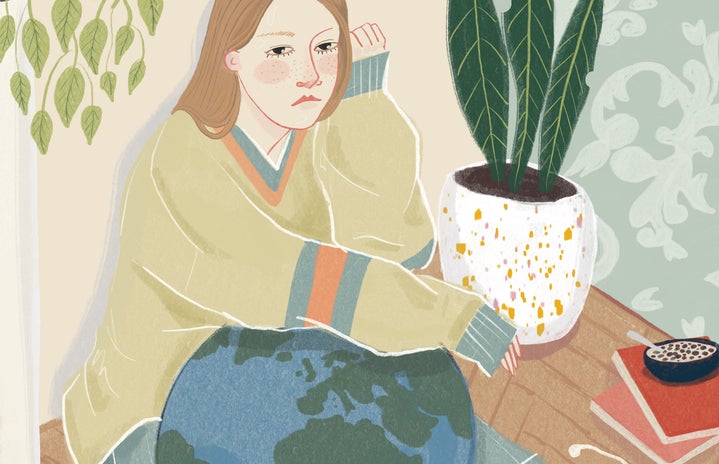Anxiety stems from the made up stories we constantly tell ourselves. When a friend doesn’t return a call or your boss asks to speak with you, we fill in the blanks of what could happen, usually in the most pessimistic way. These made up story scripts can be destructive, isolating us and leaving us with unnecessary worries. As climate change has become more apparent and real to the general public with doomsday headlines and scary statistics of what could happen, it is no wonder many people are suffering from “eco-anxiety.” A report done in 2018 found almost 70% of people in the United States are worried about climate change, and around 51% feel “helpless.”
A 2017 report by The American Psychological Association describes the term “eco-anxiety” as:
– a chronic fear of environmental doom
– a source of stress caused by watching the slow and seemingly irrevocable impacts of climate change unfold, and worrying about the future for oneself, one’s children, and future generations
– feelings of loss, helplessness, and frustration due to their inability to feel like they are making a difference in stopping climate change.

Although knowing the worst possible outcome can act as a motivating factor to take action, most people don’t hold the individual power to make decisions that are substantial enough to change the course of climate change. This doesn’t mean individual action isn’t important, but the average person cannot make as much change as someone who is a senator or CEO of an oil company, simply because they do not have the same threshold of power. This realization in of itself exacerbates eco-anxiety with the realization of how little power we hold individually, and makes us feel hopeless about the state of the future. Eco-anxiety can be detrimental to progress, as the hopelessness it fosters can lead to paralysis and inaction. If you find yourself among the demographic that struggles with eco-anxiety and worries about the prospects of the future, here is what you can do to battle that anxiety:
Get Involved
Taking action toward helping the environment is one of the most beneficial things you can do for yourself and the greater good if you are struggling with eco-anxiety. Whether it is volunteering for a non-profit, campaigning for politicians with strong environmental platforms, or organizing local park cleanups, getting involved can help ease the feelings of hopelessness associated with climate change. Additionally, joining a community of like-minded individuals gives you a space to talk to people who struggle with the same anxiety about the future. It allows you to understand that it’s not just you against the world.
Understand Your Scope
You have more influence than you think. By posting on social media or teaching your friends and family what they can do to combat climate change, you can be the starting point for a ripple effect of change.
Accept That You’re Not Perfect
The structure of our society is inherently unsustainable. Unless you are living off the grid, there is no way to live a 100% sustainable life, so be easy on yourself. A long as you are taking steps toward sustainability, know you are moving in the right direction. The burden of climate change does not fall solely on you. We need to be advocating for a world where everyone does their part, rather than relying on a small percentage of the population to fix our problems.



